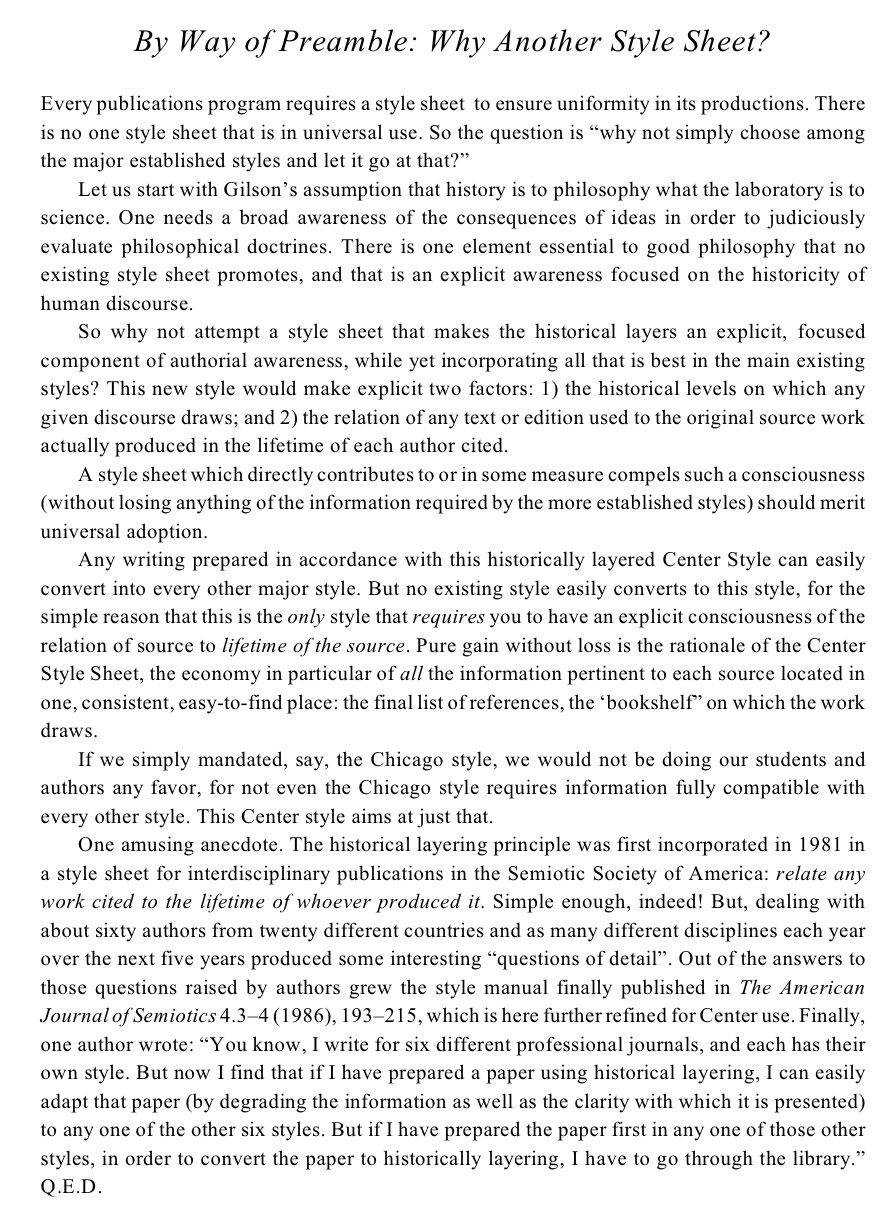
Brief Version (SSA): SMALL (2 pages) -- explains the principle of historical layering
Journal Version (TAJS): MEDIUM (18 pages) -- covers the most common types of referencing
Center for Thomistic Studies (CTS) Version: LARGE (39 pages) -- includes details on how to reference authors like Aristotle and Aquinas
Examples from a bibliography with Historically Layered References
Major paper topic: "Some people argue that modern philosophy originates in the attempt to synthesize reason with faith, of which Aquinas is the paradigm example. Does mixing reason with faith lead to skepticism and nihilism? Is reason the friend or foe of religion? Do you agree with Deely that postmodernity, by abandoning 'the way of ideas' of modern philosophy, is a positive development?"
"Aquinas did not view truths of reason and truths of revelation as incompatible or in need of synthesis. Underlying the theological project of Aquinas' two Summas is the assumption that what is true is true whatever its immediate source, given that all truth ultimately comes from God who is true. Aquinas' project is not an attempt to synthesize incompatibles."-Aquinas Reconsidered
"Aquinas Reconsidered" (Parts 1-3)
"Modern Science and Ancient Wisdom"
"The Vicissitudes of Philosophy in Modern Times"
"Confessions of a Sceptical Francophile"
"Theology as Queen of Hospitality"
"Faith, Wisdom, and the Transmission of Knowledge through Testimony", in Religious Faith and Intellectual Virtue, ed. Timothy O'Connor and Laura Frances Goins (Oxford: Oxford University Press, 2014), pp. 204-230.
"The Non-Aristotelian Character of Aquinas's Ethics: Aquinas on the Passions", Faith and Philosophy 28.1 (2011), pp. 29-43.
Aquinas, Summa Theologiae, "The Nature and Extent of Sacred Doctrine"